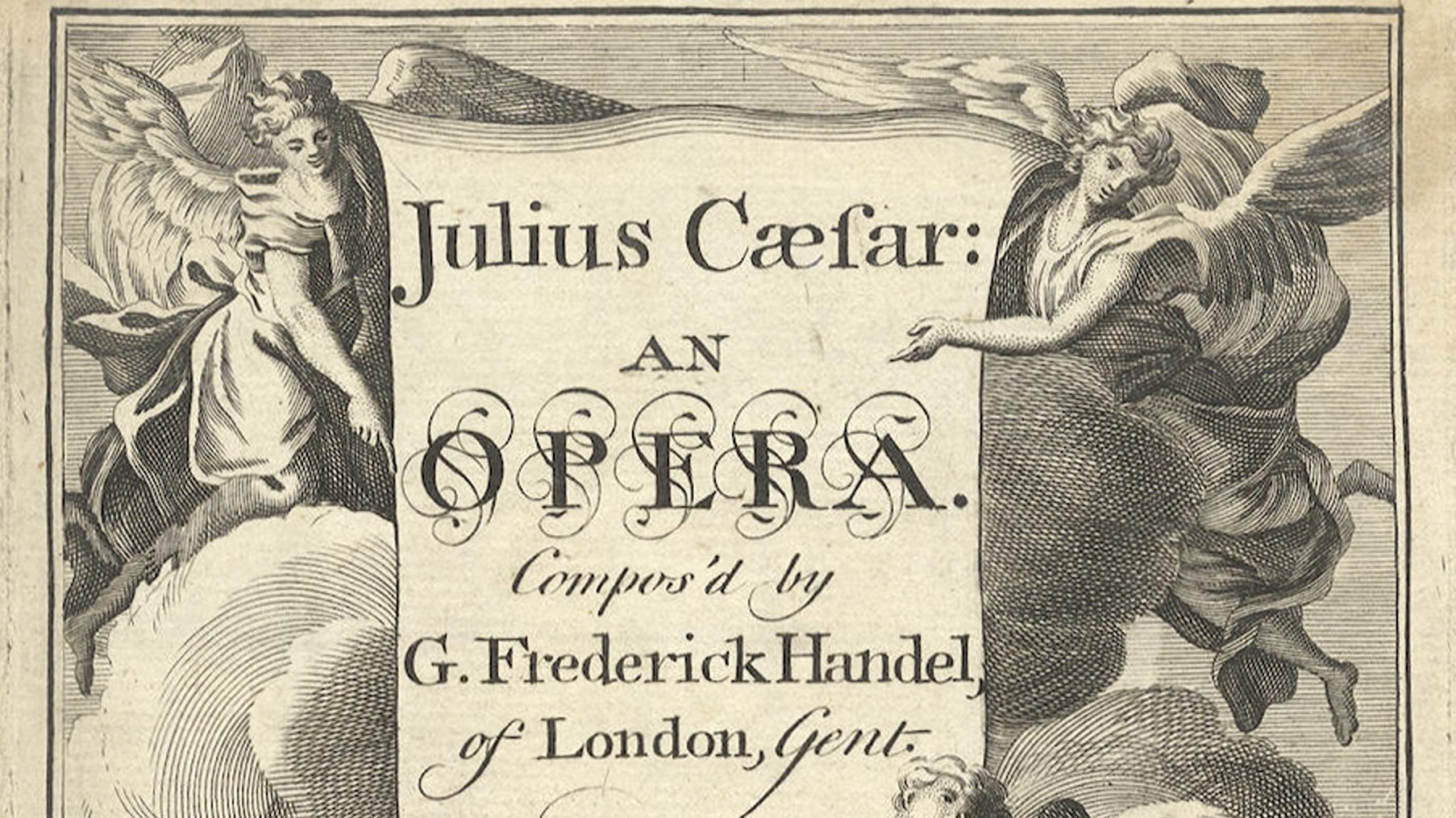Handel’s 1724 celebrated opera, Giulio Cesare in Egitto, HWV 17 (“Julius Caesar in Egypt”), explores themes of “power, ambition, love, and revenge.”
Set during the Roman Civil War of 49-45 BC, it chronicles the love story between Caesar and the cunning seductress Cleopatra. Amid this political drama, Cornelia and her stepson Sesto are determined to avenge the beheading of Pompeo (Cordelia’s husband) by Tolomeo, who rules Egypt with his sister, Queen Cleopatra.
The opera’s first act closes with Son nata a lagrimar (“I was born to weep”), a poignant duet between Cornelia and Sesto, who have been taken captive. From the introduction, the da capo aria (A-B-A structure) is filled with halting phrases, sighing, weeping gestures, and mournful descending melodic lines. It is music which suggests dignity amid utter despair.
This 2001 recording features John Nelson and the Ensemble Orchestral de Paris, with contralto Stephanie Blythe and countertenor David Daniels:
I was born to weepI was born to sigh,and for my sweet consolation,Ah, I will always weep.If fate has betrayed us,for a serene and happy day,I shall never be able to hope again.I was born to weepI was born to sigh
Recordings
- Handel: Giulio Cesare in Egitto, HWV 17, Son nata a lagrimar, John Nelson, Ensemble Orchestral de Paris, Stephanie Blythe, David Daniels Amazon
Featured Image: cover art from the first edition manuscript of Handel’s “Giulio Cesare,” published in 1724


And weep we all in these crazy, scary times. Timely choice. Ah, but dignity amid utter despair. Dignity and hope and perseverance aided by music. Thank you Tim.